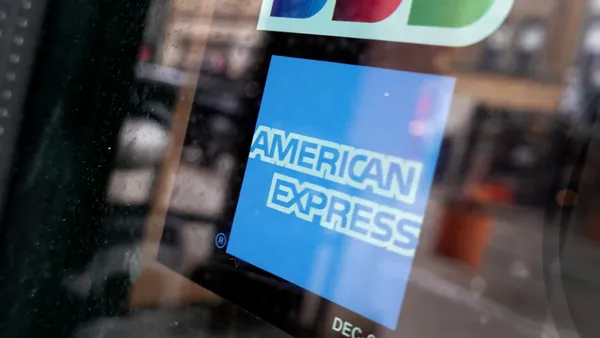A pair of British regulators fined Citi £61.6 million ($78.4 million) on Wednesday over flaws in the bank’s systems and controls that allowed a trader’s “inputting error” to cause a flash crash in May 2022.
A Citi trader had meant to sell a basket of equities at $58 million but manually and mistakenly created a $444 billion basket, the Financial Conduct Authority said Wednesday. Citi’s controls blocked $255 billion of the trade from going through, but the remaining $189 billion in shares were sent to a trading algorithm that cut it into portions to be sold throughout the day. About $1.4 billion in equities was sold across European exchanges before the trader canceled the order.
The error triggered a mass sell-off that tanked the OMX Stockholm 30 Index by nearly 8% in five minutes. At one point, €300 billion had evaporated, Bloomberg reported at the time.
The FCA faulted Citi’s systems for having “no hard block that would have rejected this large erroneous basket of equities in its entirety.” But also, Citi’s system allowed the trader to ignore a pop-up alert by manually overriding it, the regulator found.
The error “risked creating a disorderly market,” said Steve Smart, joint executive director of enforcement and market oversight at the FCA.
“We expect firms to look at their own controls and ensure that they are appropriate given the speed and complexity of financial markets,” Smart said.
Citi did not dispute the findings and agreed to settle, reducing the penalty by 30%, the FCA said.
“We are pleased to resolve this matter from more than two years ago, which arose from an individual error that was identified and corrected within minutes,” Citi said in a statement seen by the Financial Times, Reuters and Bloomberg. “We immediately took steps to strengthen our systems and controls, and remain committed to ensuring full regulatory compliance.”
The penalty breaks down to £27.8 million from the FCA and £33.9 million from the Bank of England’s Prudential Regulation Authority, which conducted its own investigation.
Between April 2018 and May 2022, Citi “received repeated supervisory communication from the PRA on the need to strengthen its trading controls,” the regulator said Wednesday. “Notwithstanding this engagement and the remediation work [Citi] undertook during the relevant period, weaknesses in trading controls persisted.”
The so-called “fat-finger error” from May 2022 isn’t the first — nor the most infamous — of mistakes owing to manual input in Citi’s systems. A Citi employee in August 2020, meaning to transfer interest payments of roughly $7.8 million on a loan owed by cosmetics company Revlon, manually adjusted the payment and mistakenly transferred the full payoff amount, with interest — roughly $900 million — to Revlon’s creditors years ahead of schedule, using Citi’s money rather than Revlon’s.
The incident sparked a lengthy court battle and likely spurred the Office of the Comptroller of the Currency and the Federal Reserve to issue consent orders demanding upgrades to the bank’s risk management, data governance and internal controls, in addition to a $400 million penalty.
Citi has poured billions of dollars into modernizing its patchwork of systems. The initiative, dubbed “Transformation,” with a capital T, has served as a cornerstone of the Jane Fraser era, alongside the bank’s wide-ranging reorganization.














